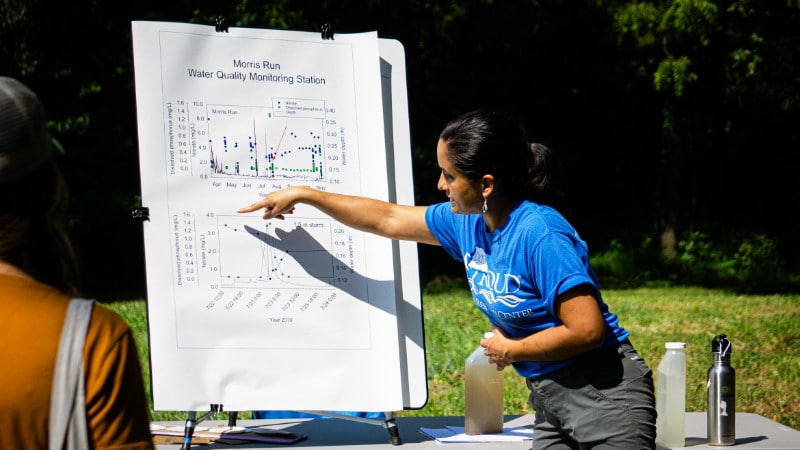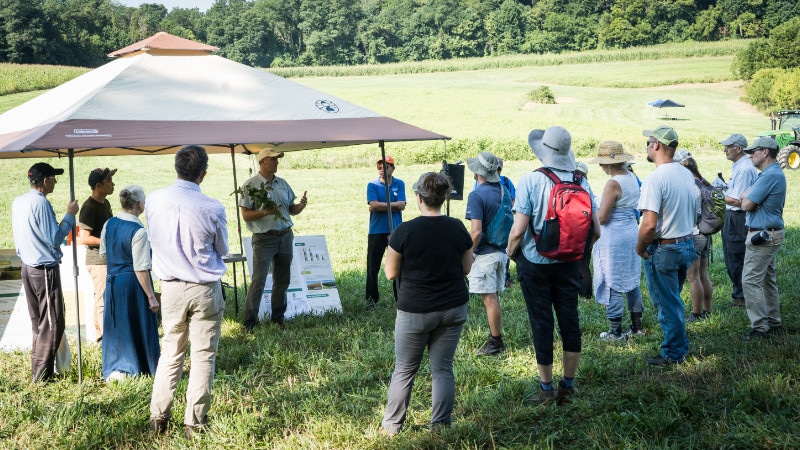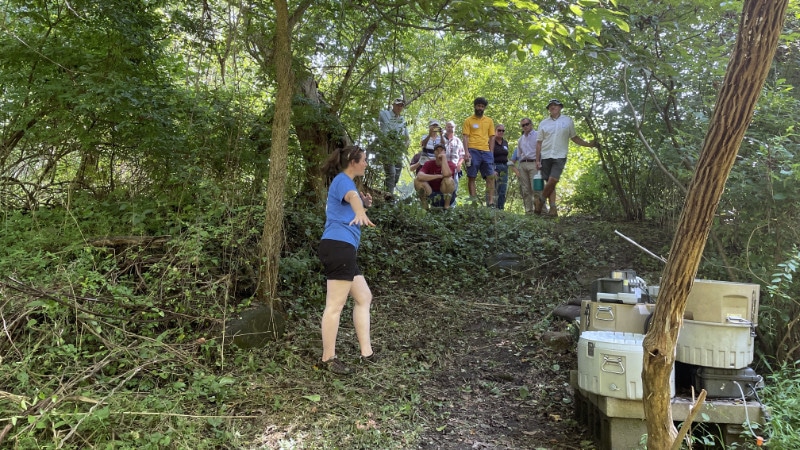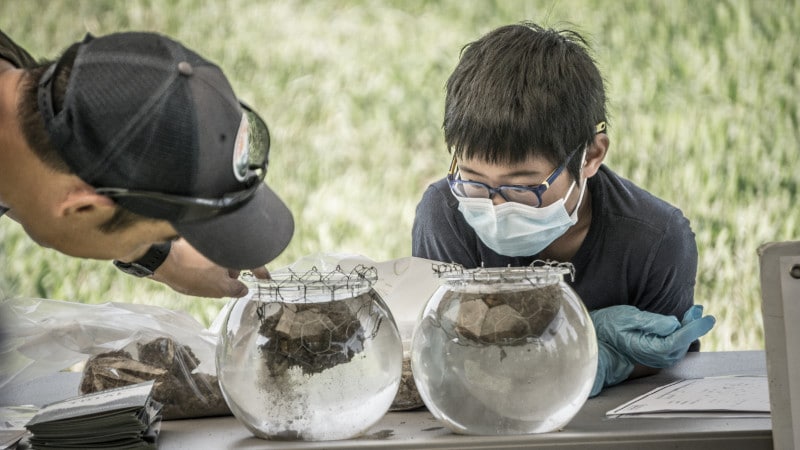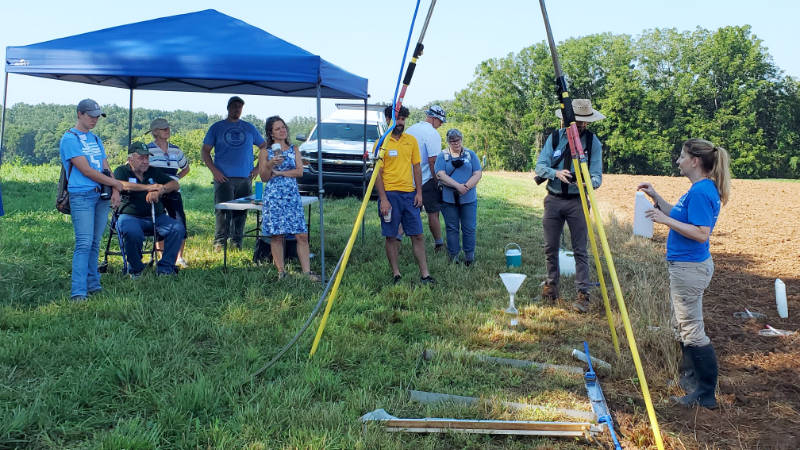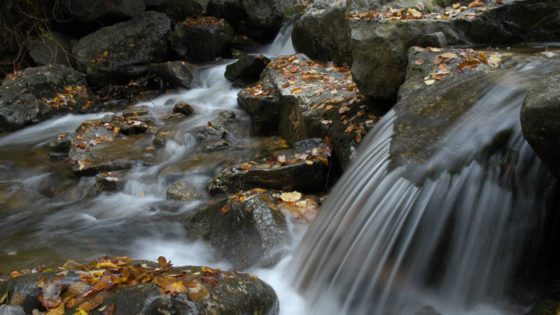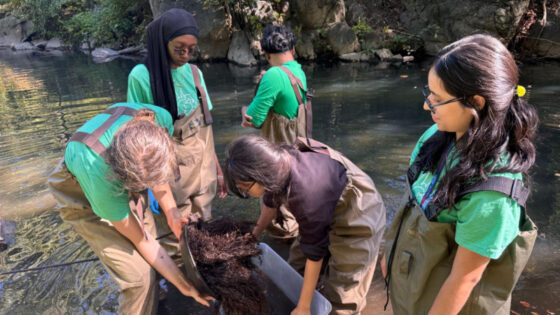From CBD to protein powder, there is a growing market for hemp seed and fiber, and scientists are now exploring how this trendy plant might even protect clean water, make soils and streams healthier, and tackle climate change.
The Demand for Hemp
On Saturday, August 14, a crowd of more than 40 enthusiasts attended the first Hemp Field Day hosted by Stroud Water Research Center. Distinguished guests, who included Chester County commissioners, Pennsylvania state representatives, farmers, entrepreneurs, and landowners, enjoyed a half-day seminar and tour of the industrial hemp fields growing at the Stroud Center.
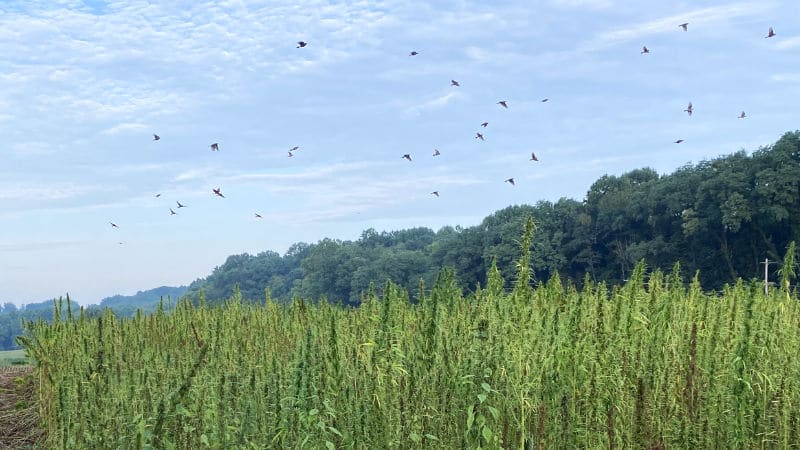
Along with Cynthia Petrone-Hudock, CEO of Hemp-Alternative, and Jamie Hicks, co-owner of Hicks Brothers, LLC, the Stroud Center is growing industrial hemp and studying the benefits this interesting plant has on the health of soils and freshwater resources, as presented by David Arscott, Ph.D., executive director of the Stroud Center.
Other guest speakers shared successes and challenges to educate and promote awareness of the many uses of this plant.
- Jessica DeLuise (also known as the Wellness Kitchenista), a certified physician’s assistant who holds a master’s in health science and a certification in culinary medicine, shared nutritional goodies from her kitchen made from hemp seed and provided information about the high protein health benefits.
- Jason Crook, an assistant teaching professor at Thomas Jefferson University, discussed market development and consumer behavior for CBD.
- Ron Kander, Ph.D., dean of Thomas Jefferson University’s Kanbar College of Design, Engineering, and Commerce, spoke on hemp, materials research.
- Brian George, Ph.D., an associate professor of engineering at Thomas Jefferson University, explained how hemp fibers can be used in textiles.
- Alyssa Collins, Ph.D., an associate research professor at Pennsylvania State University, and Terry Moran, vice president of production and operations of International Hemp, provided insight on sourcing quality seed.
- Moran also joined Hicks in a discussion about seeds, planting, and harvesting hemp fiber.

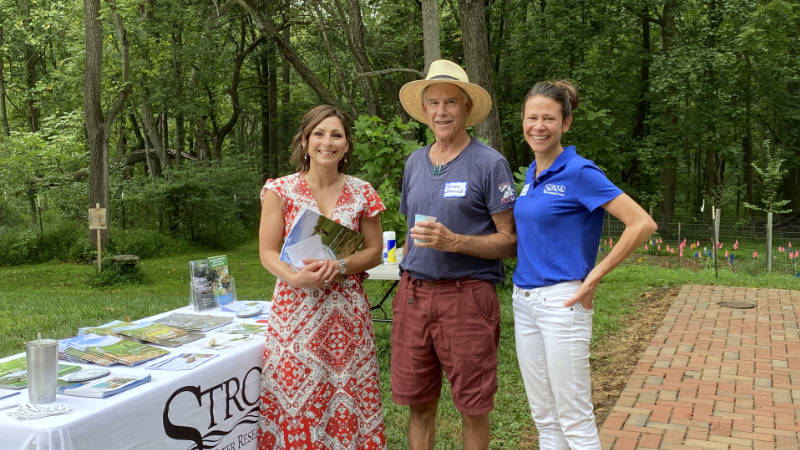
Which Farming Methods Work Best for Soil Health and Water Quality?
Soil health and water quality on local farms — and how scientists measure it — was the subject of a second field day, held on August 25. Forty guests visited Natural Lands’ Stroud Preserve to see firsthand how different farming practices affect soil and water quality. There is growing interest in how farming practices can improve soil’s capacity to produce abundant crop yields while reducing stormwater runoff, sequestering carbon dioxide (a leading greenhouse gas), and enhancing food quality.
As part of a six-year study funded by the William Penn Foundation, Stroud Center and Rodale Institute scientists are examining how organic, conventional, and conservation farming practices perform in a small watershed at the Stroud Preserve. During the field day, scientists demonstrated how they measure soil organic matter, microbial organisms, water infiltration and runoff, pesticide residues, and other parameters. Local farmer Jamie Hicks shared his farm expertise, as he is managing the three farming practices being evaluated.
Guests learned that soil health is possible in both organic and non-organic conservation farming practices, although there are strengths and challenges to both. While organic farming doesn’t use pesticides and synthetic fertilizers, which is beneficial to the environment, it often incorporates tilling of the soil for weed control which can lead to increased soil erosion, especially on steeply sloped fields. On the other hand, conventional farming, which relies heavily on pesticides to control weeds and pests, enables farmers to reduce or eliminate tillage, a key soil health strategy. Those same pesticides, however, can harm non-target plant and insect species.
As more consumers seek organic produce and farmers respond to that growing market, more information is needed on the tradeoffs of these different farming practices. Findings from this study will do just that, informing future farming and policy decisions.
Want to support more innovative research to protect clean fresh water? Learn how you can help.
